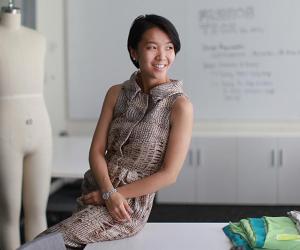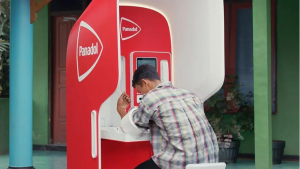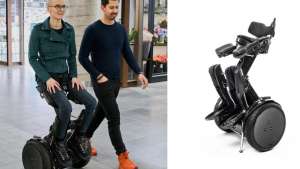Grace Jun is a social entrepreneur and designer who creates innovative garments for individuals with disabilities. Her design thinking is underpinned by an altruistic consideration for the entire population. She designs clothing that is comfortable, stylish, and functional for people with disabilities, not limited to aging or injury.
“If we’re going to be designing for the future, shouldn’t we be challenging ourselves to design beyond human augmentation?” asks Jun, “And not just restoring it, as we see in many cases for assistive tech or medical products.”
During her time at Samsung Electronics and the Parsons School of Design, Jun started researching the shortcomings of fashion and its lack of consideration for those living with long term illness or physical impairment. She identified that not having accommodating clothing options has been a barrier for not only people living with disabilities but also those who have sustained injury or are recovering from surgery.
Jun’s exploration of the subject eventually led her to Open Style Lab, an organisation that shared her passion for accessible clothing, for which she now serves as Executive Director.
The designer focussed on one case of a breast cancer survivor named Dorothy who had been living in near constant discomfort (due in part to unforgiving attire). Jun created a garment that has an embedded circuit system with Bluetooth to record Dorothy’s range of motion throughout the day as a starting point. She could analyse the data regarding the wearer’s arm and torso movements (as well as their limitations) on screen and make informed decisions about the kind of garment that would be more suitable.
Bringing fashion and technology together, Jun designed a prototype range of jackets that encompassed the necessary elements that would improve comfort, such as magnetised clasps and wider arm holes, instead of just adding on impressive computer circuitry.
“So I would hope this type of wearable or inclusive design would better allow Dorothy to communicate her dialogue with her physical therapist,” says Jun, “To elevate her confidence and therefore to empower her daily life.”
Credit to Open Style Lab team members Ryan DeRoche, Alex Peacock, June Kim and Kira Bender who worked with Jun on the Rayn Jacket as well as Eliza Mury, Aimee Mury, Christina Glover, Elizabeth Riley, and Uma Desai who worked on the Ease jacket as depicted in the presentation.










